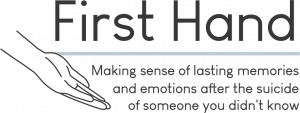I’ve been a mental health street triage practitioner in London for five years, after training and working as a social worker. We work with the police, supporting people in a mental health crisis. Most of my time is spent out on patrol with the officers, no two shifts are ever the same.
A lot of what I do is instinctive, it isn’t something you can easily train for as you never know what to expect next. When I started the job, I went to counselling regularly for the first couple of years. That was very important to build my ability to cope and it gave me strategies to be able to manage what I experience.
Sadly, much of my day-to-day role is supporting people who are suicidal. Sometimes, it is just me and that person talking. It can be frightening, working out what is safe for me to do. I have a toolbox in my head of things to talk about, just trying to get the person to think again.
If there are other members of the public on the scene, I will only get a short time to be able to check in with them as we’re often quickly off to another job. I do ask people if they have someone at home they can go back to, and I make sure to tell them to keep talking.
I see how these incidents affect police officers too. At the scene they can seem ok, but I know that some minimise what they see even though they can be really affected. I always listen to them when they want to talk, they need to have someone neutral to offload to.
It is an intensive job but watching mindless TV helps me to relax when I am at home. I make sure I talk to my husband when I need to share how I’m feeling. He understands the value of listening. That’s the thread that runs through my whole day – the importance of talking and listening.
